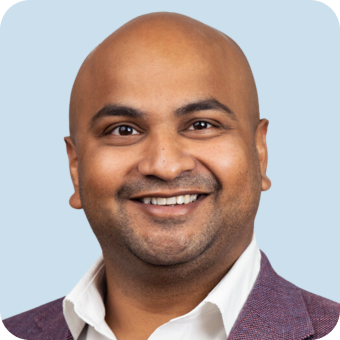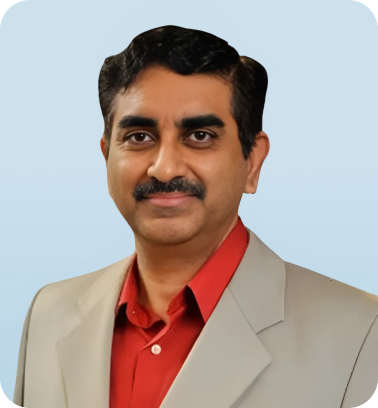At Zenith Cardiology, our team of highly skilled and experienced cardiologists is dedicated to providing exceptional, patient-centered heart care. Each of our specialists brings a wealth of knowledge in various subspecialties, including interventional cardiology, electrophysiology, heart failure management, and preventive cardiology. Our cardiologists are committed to staying at the forefront of the latest advancements in cardiovascular medicine, ensuring that every patient receives the most accurate diagnoses and cutting-edge treatments. At Zenith Cardiology, we believe in a collaborative approach, working closely with patients to develop personalised care plans that address their specific needs and promote long-term heart health. Whether you’re here for a routine check-up or specialised treatment, you can trust our team to deliver the highest standard of care with compassion and expertise.
At Zenith Cardiology, our team of highly skilled and experienced cardiologists is dedicated to providing exceptional, patient-centered heart care. Each of our specialists brings a wealth of knowledge in various subspecialties, including interventional cardiology, electrophysiology, heart failure management, and preventive cardiology. Our cardiologists are committed to staying at the forefront of the latest advancements in cardiovascular medicine, ensuring that every patient receives the most accurate diagnoses and cutting-edge treatments. At Zenith Cardiology, we believe in a collaborative approach, working closely with patients to develop personalized care plans that address their specific needs and promote long-term heart health. Whether you’re here for a routine check-up or specialized treatment, you can trust our team to deliver the highest standard of care with compassion and expertise.
At Zenith Cardiology, our team of highly skilled and experienced cardiologists is dedicated to providing exceptional, patient-centered heart care. Each of our specialists brings a wealth of knowledge in various subspecialties, including interventional cardiology, electrophysiology, heart failure management, and preventive cardiology. Our cardiologists are committed to staying at the forefront of the latest advancements in cardiovascular medicine, ensuring that every patient receives the most accurate diagnoses and cutting-edge treatments. At Zenith Cardiology, we believe in a collaborative approach, working closely with patients to develop personalized care plans that address their specific needs and promote long-term heart health. Whether you’re here for a routine check-up or specialized treatment, you can trust our team to deliver the highest standard of care with compassion and expertise.

Interventional Cardiologist
Professor Rohan Jayasinghe is a distinguished cardiologist and academic leader with expertise in interventional cardiology and cardiovascular research. With over two decades of clinical experience, he specializes in complex coronary interventions, heart disease prevention, and management. As a professor of medicine, he has contributed to numerous peer-reviewed publications and is renowned for his commitment to medical education. Professor Jayasinghe is dedicated to advancing patient care through innovative treatments and fostering the next generation of cardiologists through his leadership and mentorship.

Interventional Cardiologist
Dr. Anudeep Gupta is a proficient interventional cardiologist with expertise in performing advanced cardiac procedures, including angioplasty, stenting, and managing complex coronary artery disease. With a patient-centered approach, he is dedicated to offering personalized care and utilizing the latest minimally invasive techniques to treat heart conditions. Dr. Gupta is committed to improving patient outcomes by focusing on both acute interventions and long-term heart health management, ensuring comprehensive cardiovascular care tailored to each patient’s unique needs.

Cardiology | Electrophysiology
Dr. Robert Park is a highly skilled cardiologist specializing in electrophysiology, focusing on the diagnosis and treatment of heart rhythm disorders. With extensive experience in managing arrhythmias, atrial fibrillation, and performing catheter ablations, Dr. Park is dedicated to delivering cutting-edge care. He emphasizes a personalized approach to treating complex cardiac conditions, utilizing advanced technologies like pacemakers and defibrillators. His patient-centered care and expertise in heart rhythm management make him a trusted leader in the field of cardiac electrophysiology.

Cardiologist
Dr Rama Kannan is an experienced cardiologist specializing in diagnosing and treating a wide range of cardiovascular conditions. With expertise in preventive cardiology, heart disease management, and advanced cardiac imaging, Dr. Kannan is dedicated to providing patient-centered care. She is skilled in performing non-invasive diagnostic procedures, including echocardiography and stress testing. Dr. Kannan emphasizes personalized treatment plans, focusing on lifestyle modifications and evidence-based medical therapies to improve patient outcomes and promote heart health across diverse patient populations.

Cardiologist
Dr. Veera Raghava is a skilled cardiologist with extensive experience in diagnosing and managing a variety of cardiovascular conditions. He specializes in preventive cardiology, heart failure management, and non-invasive cardiac imaging, including echocardiography and stress tests. Dr. Raghava is dedicated to delivering personalized care tailored to each patient’s unique needs, focusing on evidence-based treatments and lifestyle interventions. His patient-centered approach, combined with a deep commitment to improving heart health, makes him a trusted expert in the field of cardiology.

Senior Consultant Dietitian and Nutritionist
Angeline Y Stania is a Senior Consultant Dietitian and Nutritionist. She is passionate about helping individuals improve cardiovascular well-being through personalised, evidence-based nutrition strategies. Angeline focuses on promoting heart-healthy diets rich in fiber, antioxidants, and healthy fats, while reducing intake of sodium, saturated fats, and sugars. Her approach integrates nutritional science with practical lifestyle changes to lower the risk of heart disease, manage cholesterol and blood pressure, and enhance overall cardiovascular function. With a focus on preventive care, Angeline empowers her clients to achieve lasting heart health outcomes.


Vanessa has an excellent communication style and builds strong, long-term relationships at all levels, contributing to healthier, more effective business partnerships.
With over 10 years of experience in the healthcare sector, Vanessa has worked in Hospital and Medical Groups, applying her expertise to:
Bring the convenience of Mobile Cardiac Sonography directly to your GP clinic with Zenith Cardiology. Our mobile service allows you to offer your patients advanced cardiac diagnostic testing on-site, including echocardiograms and other essential heart assessments. By partnering with us, your clinic can provide faster, more accurate diagnoses, reduce wait times, and improve patient outcomes without the need for external referrals.
Receive detailed, high-quality diagnostic reports promptly to guide treatment decisions.
Access precise and thorough results to help manage and track your patients' cardiovascular health.
Patients can undergo cardiac testing without leaving your clinic, ensuring continuity of care and ease of access.
All tests are interpreted by experienced cardiologists, providing reliable insights into your patients' heart conditions.
Register now to enhance your clinic’s cardiac care offerings with our mobile sonography service!
At Zenith Cardiology, we prioritise appointment requests based on the urgency of the patients condition. Our team will assess your referral and symptoms through a triage process to ensure that patients with the most critical needs are seen promptly. If your situation requires immediate attention, we will expedite your appointment. For non-urgent cases, we will work with you to schedule the next available appointment that fits your needs. Please contact our clinic for more information on scheduling and triage-based appointments.
Yes, at Zenith Cardiology, we offer telehealth consultations for patients who prefer or need remote care. Telehealth allows you to have a virtual consultation with one of our cardiologists from the comfort of your home, providing expert care and advice without an in-person visit. These consults are ideal for follow-up appointments, discussing test results, or managing ongoing heart conditions. To request a telehealth appointment, please contact our clinic, and we will guide you through the process of scheduling your virtual visit.
The average waiting time for an appointment at Zenith Cardiology depends on the urgency of your condition and the availability of our specialists. For urgent cases, appointments can often be arranged within a few days, while non-urgent cases may have a longer wait time. We recommend contacting the clinic directly to discuss your needs and receive an accurate estimate based on current scheduling availability. Our team will do their best to accommodate your request as soon as possible.
Yes, there are several lifestyle modifications that are highly recommended for improving and maintaining cardiovascular health. These include adopting a heart-healthy diet rich in fruits, vegetables, whole grains, lean proteins, and healthy fats while reducing saturated fats, sodium, and processed foods. Regular physical activity, such as at least 150 minutes of moderate exercise per week, is also essential. Managing stress, quitting smoking, limiting alcohol consumption, and maintaining a healthy weight are critical factors as well. Your cardiologist may recommend personalized modifications based on your specific health needs to further reduce your risk of heart disease.
A cardiologist may order several tests to assess heart health, depending on your symptoms and medical history. Common tests include:
Your cardiologist will select the appropriate tests based on your specific condition to ensure a comprehensive assessment of your heart health
A General Practitioner (GP) plays a crucial role in managing a patient with a cardiovascular condition. GPs are often the first point of contact for identifying potential heart issues and can coordinate care by conducting initial assessments, ordering basic tests, and managing risk factors such as high blood pressure, high cholesterol, and diabetes. They work closely with cardiologists by providing referrals for specialized care and ensuring that patients follow prescribed treatment plans, including medications, lifestyle changes, and routine monitoring. GPs also help manage ongoing care by monitoring the patient’s overall health, adjusting medications as needed, and offering support in managing risk factors to prevent the progression of cardiovascular disease.
GPs should stay informed about several key advancements in cardiology, including:
These advancements enable more effective, personalized, and less invasive care for cardiovascular patients.
As a healthcare provider, you can play a crucial role in preventing cardiovascular diseases by focusing on several key strategies:
By addressing these areas, you can help your patients reduce their risk of cardiovascular diseases and improve their long-term heart health.
When monitoring patients for heart failure, be aware of the following key signs and symptoms:
Monitoring these symptoms closely can help in early detection and timely management of heart failure, improving patient outcomes.
Managing a patient with a family history of heart disease involves proactive steps to reduce their risk and monitor their heart health closely:
By addressing these areas, you can help manage your patient's risk of heart disease and provide early interventions when necessary.
Zenith Cardiology stands out for its personalized, patient-centered care combined with cutting-edge technology. Our team of highly skilled cardiologists offers a comprehensive range of services, from preventive cardiology to advanced treatments, ensuring that each patient receives a tailored approach based on their unique needs. We also provide mobile diagnostic services, allowing patients to access critical heart tests and monitoring from the comfort of their homes or GP Clinics. Our commitment to innovation, compassion, and quality care, along with a focus on convenience and accessibility, sets us apart as a leader in cardiovascular health.
Understanding your condition, making mindful choices and ensuring you have the right support will help you move towards a healthy and rewarding life.
Ground Floor, 105 Upton Street, Bundall, QLD 4217